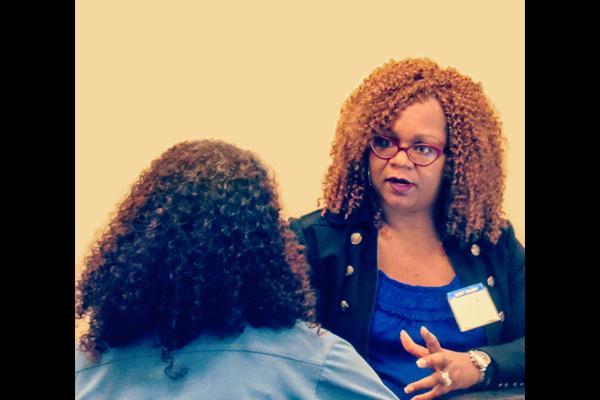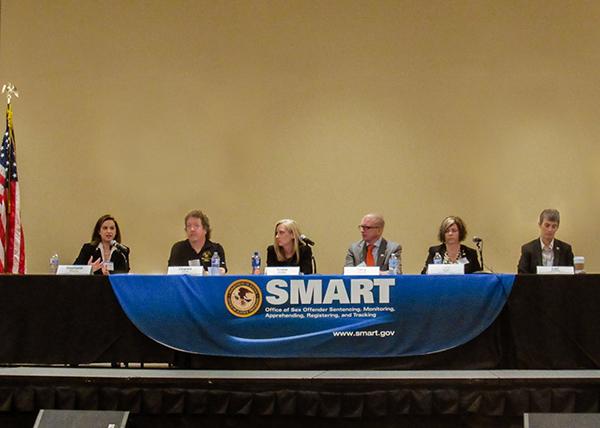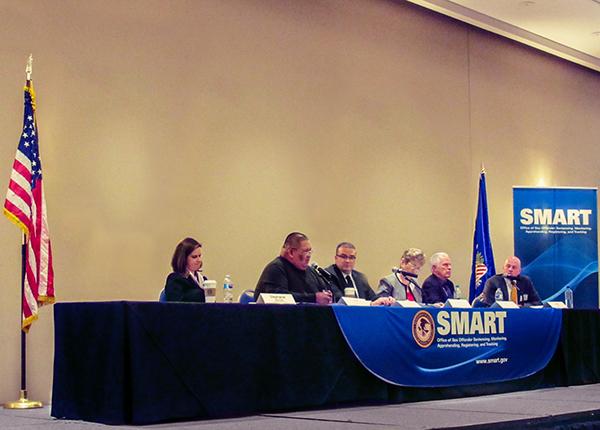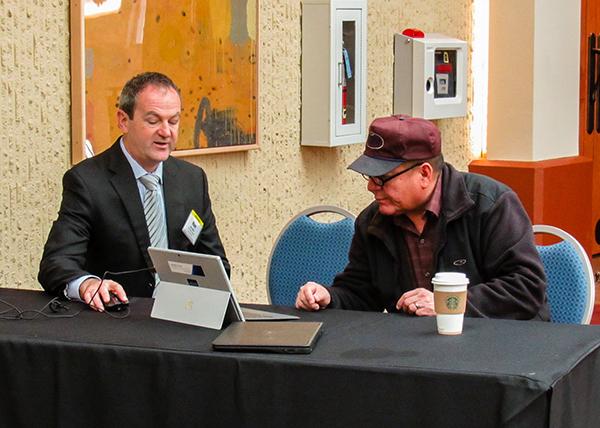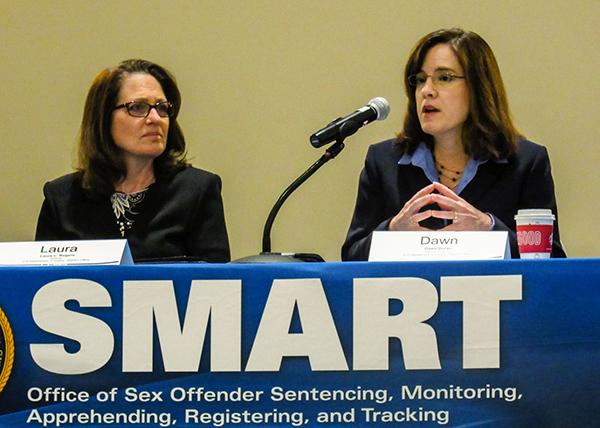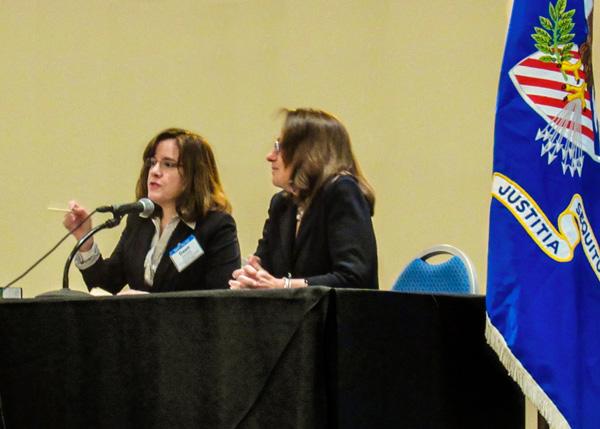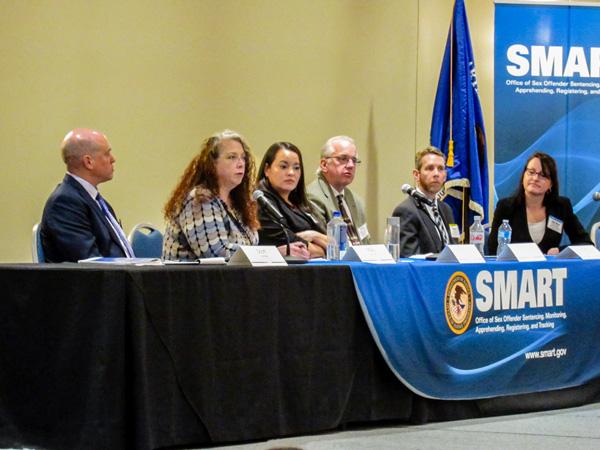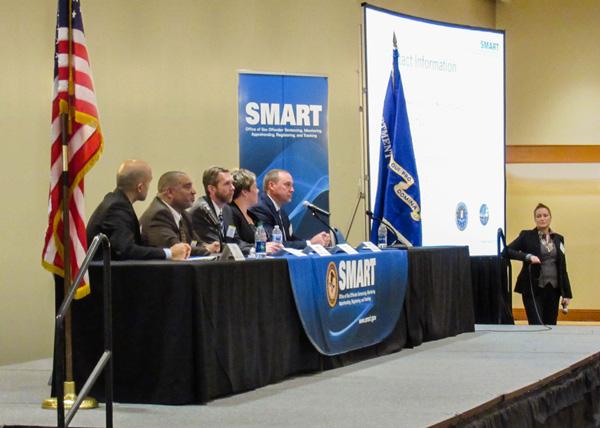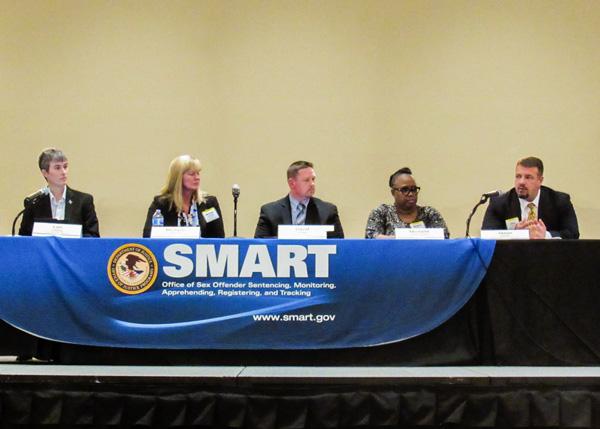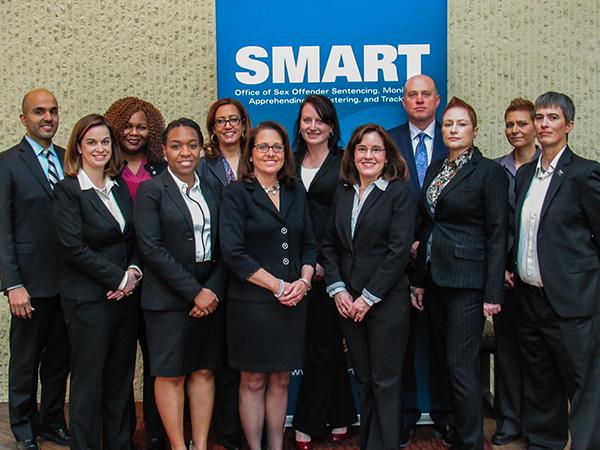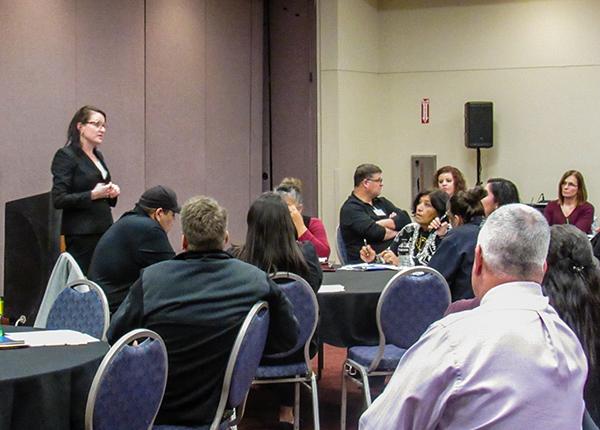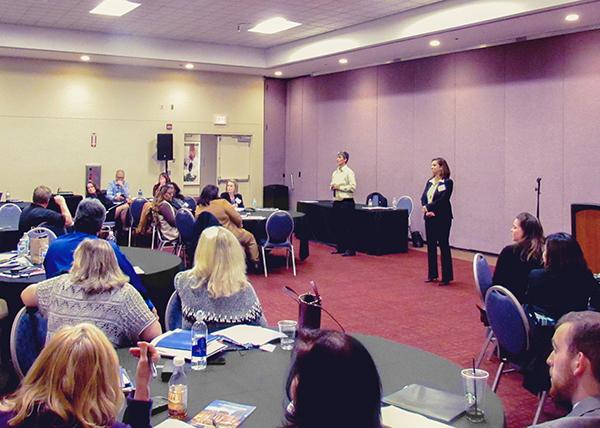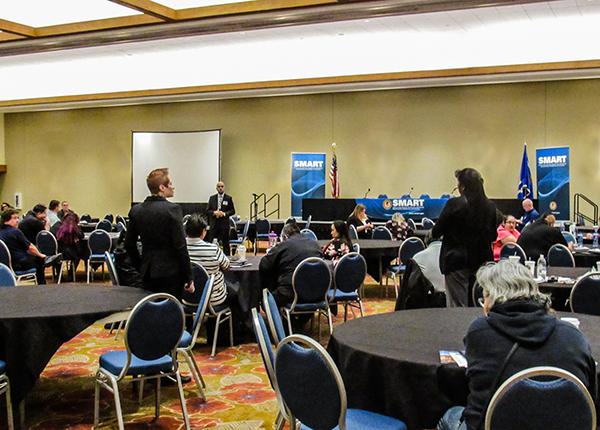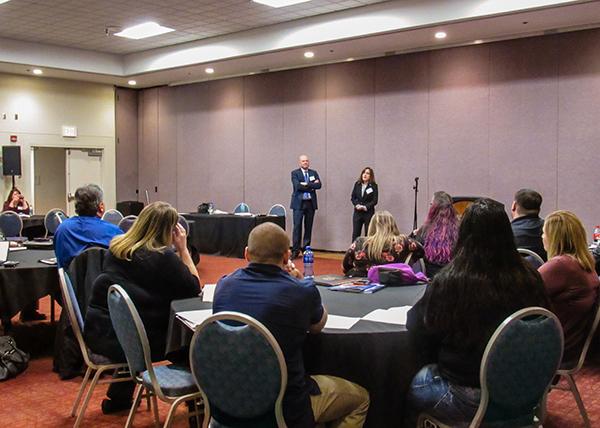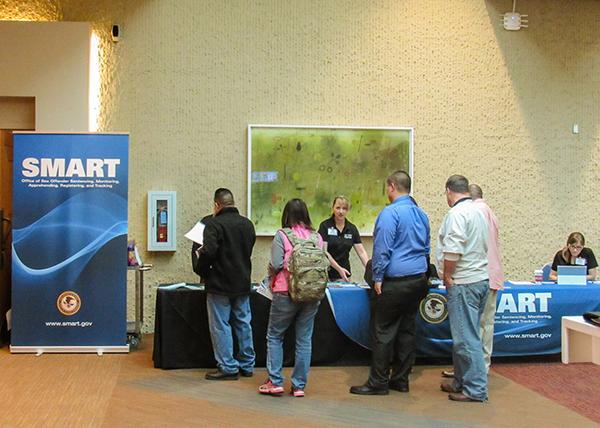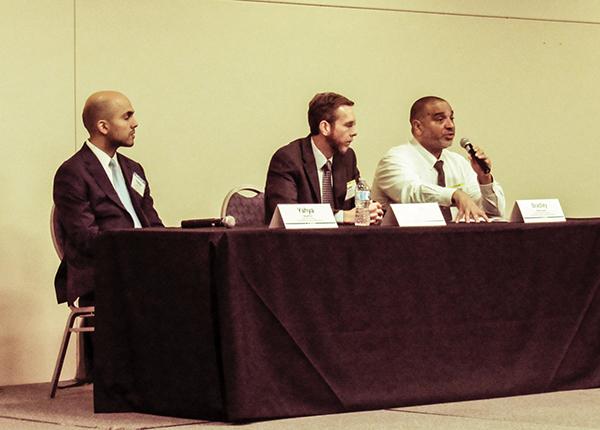The Department of Justice's Office of Sex Offender Sentencing, Monitoring, Apprehending, Registering, and Tracking (SMART) recently hosted the 2018 Sex Offender Registration and Notification Act (SORNA) Workshop Jan. 9-10 in Albuquerque, New Mexico.
The SORNA workshops are designed to further assist states, tribes and U.S. territories to substantially implement SORNA, Title I of the Adam Walsh Act. Due to budget constraints, this was the first national SORNA training workshop since January 2014.
"The mission of the SMART Office is to assist with implementation of the Sex Offender Registration and Notification Act by assisting our partner states, tribes and territories with sex offender management activities needed to ensure public safety," said Director Laura L. Rogers, who was sworn in Jan. 4. "We were excited by the enthusiastic participation of the professionals gathered to increase their knowledge, build partnerships and increase their ability to protect their communities."
Nearly 200 sex offender registry officials and law enforcement personnel attended the two-day SORNA workshop, where they participated in working groups and panel discussions and heard presentations from faculty from the U.S. Marshals Service's National Sex Offender Targeting Center; INTERPOL-Washington; the FBI DNA Laboratory; FBI-Criminal Justice Information Services; state, territory and tribal representatives and SMART Office staff. Topics included information sharing, including information collection, interjurisdictional communication and enforcement strategies; ways to address jurisdictional-specific challenges; best practices and innovations in registration and notification; and sustainability. Also on hand were grant managers and information technology specialists to provide individual, tailored assistance to jurisdictions.
Registration officials and law enforcement personnel from states, tribes and territories related valuable information-sharing strategies and networked with their peers on emerging issues. SORNA Workshop participants engaged in breakout discussions targeting specific issues on registration and notification for their particular jurisdiction and region.
"Through my involvement with the SMART office since its inception, I have come to appreciate the hard work and dedication to put on these workshops," said Dawn Peck, manager of the Bureau of Criminal Identification, Idaho State Police. "Having the state programs and the tribal programs come together to share information is invaluable. The networking and sharing of successes and challenges helps to refocus everyone on the goals of the program."
The workshop also benefitted tribal partners.
"The 2018 SORNA Workshop was another successful opportunity for tribes to build bridges nationwide, said Theresa Faris, SORNA technical assistant for the Cheyenne and Arapaho Trial Court, Cheyenne and Arapaho Tribes of Oklahoma. "What I appreciate most about the national workshop is that I can bring something back to share with my tribal jurisdiction that is informative and pertinent to our situation. I also enjoy coming to build connections outside the tribal network. Rarely would I have this opportunity, if not for the SMART Office putting on these workshops. Tribal nations are so wonderfully unique and we all have so much to contribute to SORNA. Finding common ground and realizing that we all can benefit from each other is imperative to our progress."
Since the establishment of SORNA, the Department has continuously assisted jurisdictions in implementing the Adam Walsh Act and creating a comprehensive national system for tracking and registering sex offenders. To date, 148 jurisdictions (18 states, four territories and 126 tribes) have substantially implemented SORNA.



